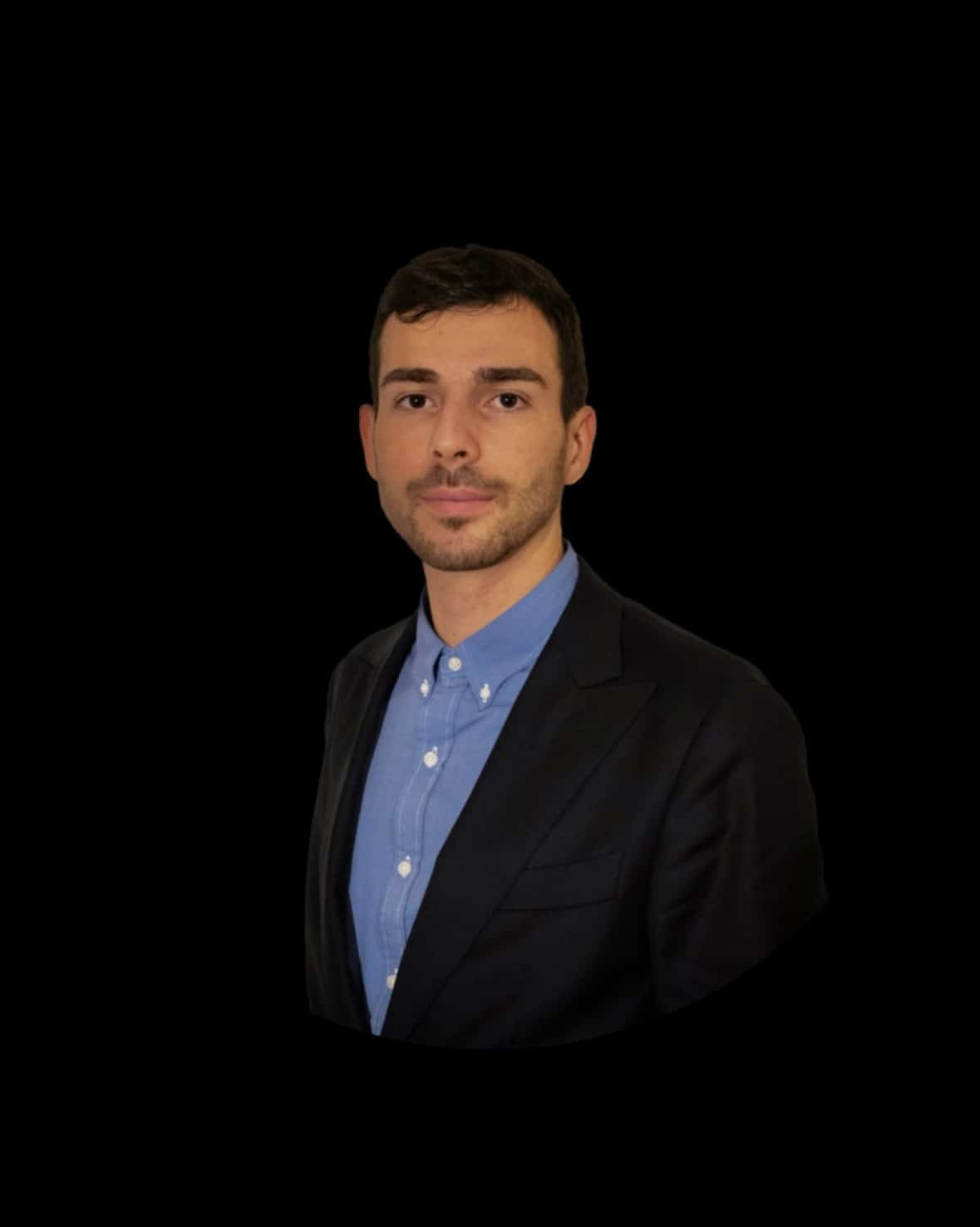The financial sector is evolving rapidly right now, thanks in large part to technology. Cloud computing, automation and IT infrastructures are all transforming the way investment is managed.
Clément, DevOps Engineer and Business Analyst at Qim info, embodies this transformation. With a background in cloud engineering and finance, he has combined technical expertise and business understanding to optimize investment processes.
How did he get to this point, though? What challenges does he face on a daily basis? And how are professions like these shaping the future of DevOps in finance? Let’s look at some answers based on his own experiences.
First steps in engineering: from tech to cloud computing
Originally from Lyon, Clément has always had a passion for technology. After two years of preparatory science classes, he joined CPE Lyon, an engineering school where he specialised in IT and cloud computing.
What is cloud computing?
Cloud computing enables companies to store, manage and process data via remote servers, rather than on local infrastructures. Solutions such as Amazon Web Services and Microsoft Azure offer the increased flexibility and scalability that have become essential for modern businesses.
Clément’s interest in IT infrastructures was further strengthened during a gap year in Switzerland with TX Group, the country’s leading private media group (20 Minutes, Le Temps, Tribune de Genève).
“I worked as a Cloud Engineer and Network Engineer. That experience enabled me to experience advanced technologies and understand IT infrastructure issues at the company.
At TX Group, he was involved in setting up and optimising cloud architectures, while managing networks and systems. This formative immersion enabled him to acquire a strong overview of modern infrastructures and to confront scalability and performance issues.
A specialisation in IT architecture and the banking sector
After this experience in Switzerland, Clément returned to France to complete his engineering studies. He soon joined a technical architecture consulting firm that was later acquired by Onepoint.
“I was working in an environment where we were designing hybrid architecture solutions, mainly for banking customers.”
It was here that he honed his skills in financial information systems and discovered the challenges of complex banking infrastructures. His interest in finance grew stronger, and the idea of a return to Switzerland took shape in his mind.
Qim info and DevOps in finance: a strategic turning point
Attracted by the dynamism of the Swiss financial sector, Clément joined Qim info in 2022. In doing so, he was joining a leading financial institution, where he would be able to contribute to the development of IT infrastructures.
His role? To optimise tools and processes by providing technological solutions tailored to the needs of analysts and portfolio managers . On a day-to-day basis, he works on several strategic areas:
- Cloud computing and on-premise infrastructures for better data management.
- Optimisation of portfolio management tools to improve decision-making.
- Secure, scalable architectures to guarantee performance and compliance.
“What was it that appealed to me straight off the bat? The diversity of technologies used and the opportunity to develop both technical and cross-disciplinary skills.”
To carry out his missions and assignments, Clément relies on a range of high-performance tools that are essential when it comes to automating and securing IT infrastructures. Among the technologies he uses regularly are:
- Python, an essential language for scripting and process automation.
- AWS, a cloud platform for hosting and managing large-scale infrastructures.
- Docker and Kubernetes, which are essential for the containerisation and orchestration of applications.
- Terraform, an Infrastructure as Code (IaC) tool used to automate the deployment of IT resources.
- Git and CI/CD, guaranteeing fast, secure software delivery.
- SQL, a key language for querying, managing and structuring databases, something that is essential when it comes to system analysis and optimisation.
“On a daily basis, I use Python for scripting and automation, but also AWS and many other tools.”
Thanks to these technologies, he plays a key role in automating processes, improving the efficiency of operational tasks and proposing new solutions to optimise investment analysis and portfolio management.
His dual expertise in IT and finance has enabled him to take on increasingly important strategic assignments, many of which see him performing a role akin to that of a Business Analyst.
DevOps Engineer and Business Analyst: a hybrid role of strategic significance
After spending several months in his technical team, Clément moved on to a more cross-functional position. He joined the Alternative Investments team, which manages alternative investments, i.e. investments outside the realm of traditional equities and bonds. This department handles private equity, real estate and hedge funds.
💡What is private equity?
Private equity involves investing in unlisted companies, often to finance their development or transformation prior to an eventual resale.
💡 What is Real Estate?
Real estate investment involves acquiring, managing and developing real estate assets (offices, shops, housing, infrastructure) with the aim of generating a financial return through rental or resale.
💡 What is a hedge fund?
A hedge fund is an alternative investment fund that uses advanced strategies, such as short selling, leverage and arbitrage, to maximize returns.
Clément is now working on:
- Process automation: integrating new technological solutions to optimise data and financial flow management.
- Improved reporting tools: the introduction of tools to generate automated financial reports for private and institutional clients.
- Support for fund analysts and managers: development of tools to facilitate fund analysis and portfolio optimisation.
His DevOps expertise enables him to bring suitable cloud solutions into the picture, making the analysis of investment opportunities more efficient.
CAIA certification: constantly looking to improve one’s skills
Curious and passionate about finance, Clément is currently taking the CAIA® (Chartered Alternative Investment Analyst) certification, a recognised benchmark when it comes to alternative investments.
“This training is giving me a better understanding of alternative investments and enabling me to be someone whose knowledge is of even greater relevance to analysts and fund managers.”
💡 What is CAIA?
CAIA certification is an internationally-recognised training program that provides in-depth knowledge of alternative investments such as hedge funds, private equity and commodities. It consists of two levels, each requiring around 300 hours of teaching.
Why join Qim info as a DevOps engineer?
Beyond his technical assignments, Clément appreciates the corporate culture and collaborative spirit that prevail at Qim info. Although the consultants are spread out over different missions, the company takes care to strengthen the ties between them through events and opportunities for discussion.
“Even though we work for different customers, Qim info organizes events that enable us to interact and share our experiences. T hat’s a real plus!
The Swiss company also offers a setting that is conducive to professional development. The flexibility, attentiveness and wide range of assignments on offer enable DevOps engineers to explore new areas and develop their skills.
Clément is not the only DevOps engineer to be flourishing at Qim info. Find out more about Patrick Mivière‘s career as a DevOps expert at Qim info, and read his thoughts on how he has progressed within the company.
Qim info is recruiting DevOps experts: how would you like to be next in line?
If you, like Clément and Patrick, would like to develop in a stimulating environment, Qim info offers you the opportunity to combine technical expertise and business challenges on high value-added projects.
Join us and boost your career in DevOps and IT engineering!




